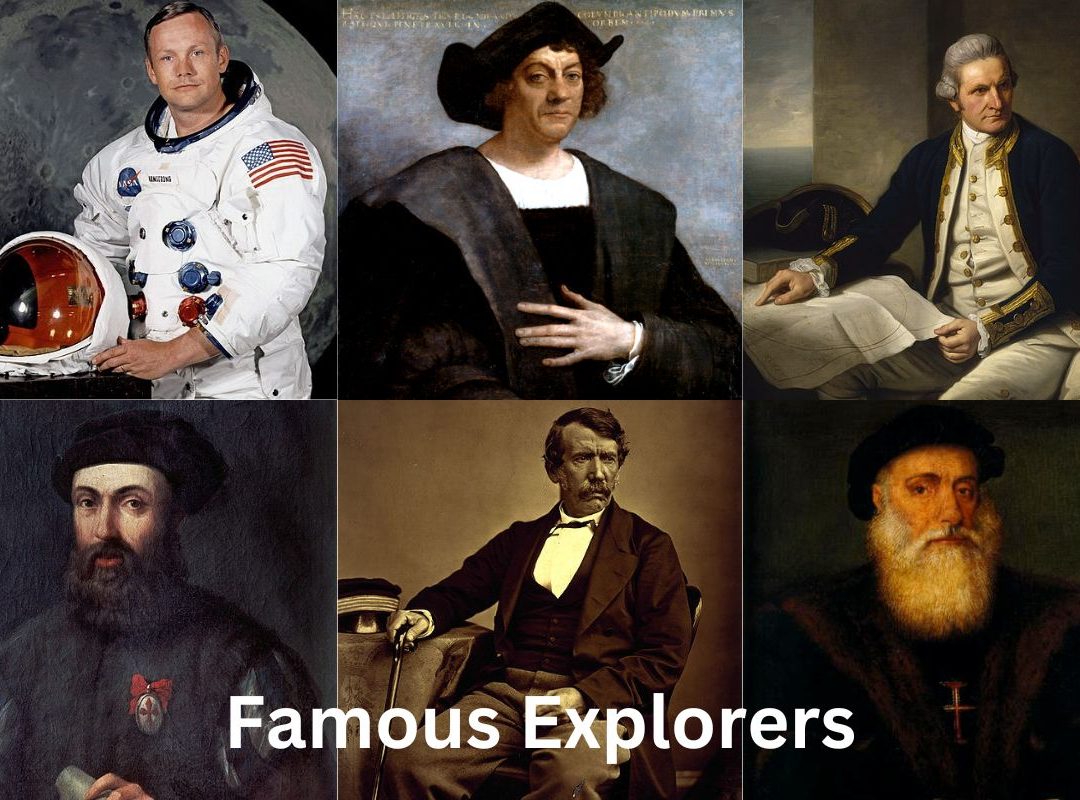England has a long history of exploration, with fearless adventurers who set sail into the unknown, mapping new territories and making groundbreaking discoveries. These important explorers in England played a crucial role in shaping the world as we know it today. From the Age of Discovery to the British Empire’s expansion, their daring expeditions helped to uncover new lands, trade routes, and scientific advancements. This article highlights 10 legendary figures who made a lasting impact on global exploration.
Sir Francis Drake – The First Englishman to Circumnavigate the Globe
Sir Francis Drake remains one of the most important explorers in England, known for his daring circumnavigation of the globe between 1577 and 1580. A skilled navigator and privateer, Drake played a key role in establishing England as a dominant maritime power. His voyages not only expanded England’s influence but also disrupted Spanish dominance in the New World. His success made him a national hero, earning him a knighthood from Queen Elizabeth I.
Captain James Cook – The Mapmaker of the Pacific
Captain James Cook is one of the most important explorers in England due to his extensive voyages across the Pacific Ocean. His three expeditions, between 1768 and 1779, led to the detailed mapping of Australia, New Zealand, and Hawaii. Cook’s commitment to scientific exploration helped advance geographical knowledge, making his contributions invaluable to British navigation and imperial expansion.
Sir Walter Raleigh – The Visionary of the New World
Sir Walter Raleigh is remembered as one of the important explorers in England for his attempts to establish English colonies in North America. He played a key role in the early colonization of Virginia and introduced tobacco and potatoes to England. Although his Roanoke Colony ultimately failed, his vision paved the way for future English settlements in the Americas.
Henry Hudson – The Search for the Northwest Passage
Henry Hudson is a key figure among important explorers in England due to his relentless pursuit of a northern trade route to Asia. Though he never found the Northwest Passage, his explorations led to the discovery of the Hudson River and Hudson Bay, vital waterways in North America. His name remains immortalized in these geographic landmarks, reflecting his impact on exploration.
Sir Martin Frobisher – Arctic Pioneer
Sir Martin Frobisher is one of the important explorers in England known for his Arctic expeditions in search of gold and the fabled Northwest Passage. Though he failed to find a route to Asia, he explored parts of Canada and brought back materials that were mistakenly thought to contain gold. His voyages contributed to England’s early knowledge of the Arctic and its natural resources.
Richard Chancellor – Opening Trade with Russia
Richard Chancellor is among the most important explorers in England due to his role in establishing trade relations with Russia. In 1553, he successfully navigated the frozen Arctic waters to reach Russia, where he secured a trade agreement between England and the Tsardom of Russia. His diplomatic efforts laid the foundation for Anglo-Russian trade for centuries.
John Cabot – The Discoverer of North America
John Cabot, an Italian navigator sailing under the English flag, is one of the most important explorers in England for being among the first Europeans to set foot on North America’s shores. In 1497, he reached what is believed to be Newfoundland, marking England’s early claim to territories in the New World. His voyage inspired further English exploration and colonization.
William Dampier – The Buccaneer Explorer
William Dampier stands out among the important explorers in England for his unique combination of piracy and scientific discovery. As the first Englishman to explore parts of Australia, his detailed observations of plants, animals, and weather patterns contributed significantly to natural science. His writings influenced later explorers, including Captain James Cook.
George Vancouver – The Namesake of Vancouver
George Vancouver is among the most important explorers in England for his meticulous charting of the Pacific Northwest coast of North America. His expeditions in the late 18th century helped define the borders of present-day Canada and the United States. His name lives on in the city of Vancouver, British Columbia, reflecting his lasting legacy.
Sir Humphrey Gilbert – The Founder of Newfoundland Colony
Sir Humphrey Gilbert is one of the important explorers in England known for his attempts to establish permanent English colonies in North America. In 1583, he claimed Newfoundland for England, making it the first official English colony. Though his colony did not last, his efforts laid the groundwork for future English settlements in the New World.
Conclusion
The important explorers in England played a crucial role in shaping history through their daring voyages and discoveries. Their expeditions led to new trade routes, colonial expansion, and advancements in navigation and science. Whether sailing into the Arctic, mapping uncharted lands, or establishing early English colonies, these fearless trailblazers left a lasting legacy. Their contributions continue to inspire modern exploration and remind us of the adventurous spirit that shaped the world.
FAQs
Q1. Who is considered the most famous explorer in England?
Sir Francis Drake is often regarded as the most famous among important explorers in England due to his successful circumnavigation of the globe and naval victories against Spain.
Q2. Why was Captain James Cook’s exploration important?
Captain James Cook’s voyages provided accurate maps of the Pacific, expanded European knowledge of Australia and New Zealand, and advanced scientific exploration.
Q3. Did English explorers discover North America?
John Cabot was among the first European explorers to reach North America under the English flag in 1497, laying the foundation for future English claims.
Q4. What impact did English explorers have on world history?
The important explorers in England contributed to global trade, colonization, scientific advancements, and the expansion of the British Empire.
Q5. What challenges did English explorers face?
They encountered harsh weather, unknown territories, conflicts with indigenous peoples, and navigational difficulties, making their journeys perilous.
ALSO READ: National Parks in the Northeast: 10 Hidden Gems for Nature Lovers.

